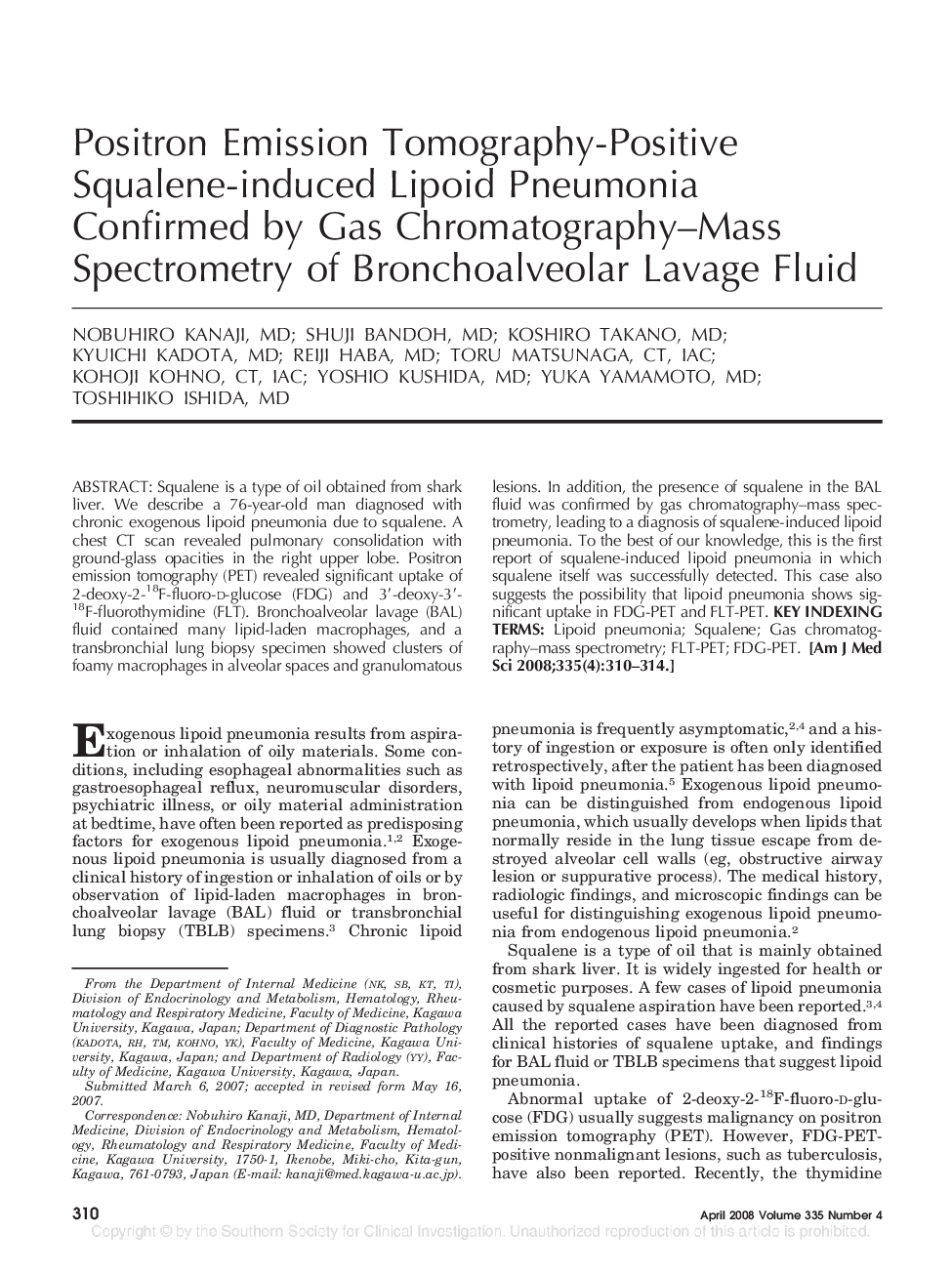| Article ID | Journal | Published Year | Pages | File Type |
|---|---|---|---|---|
| 2865042 | The American Journal of the Medical Sciences | 2008 | 5 Pages |
Abstract
Squalene is a type of oil obtained from shark liver. We describe a 76-year-old man diagnosed with chronic exogenous lipoid pneumonia due to squalene. A chest CT scan revealed pulmonary consolidation with ground-glass opacities in the right upper lobe. Positron emission tomography (PET) revealed significant uptake of 2-deoxy-2-18F-fluoro-d-glucose (FDG) and 3â²-deoxy-3â²-18F-fluorothymidine (FLT). Bronchoalveolar lavage (BAL) fluid contained many lipid-laden macrophages, and a transbronchial lung biopsy specimen showed clusters of foamy macrophages in alveolar spaces and granulomatous lesions. In addition, the presence of squalene in the BAL fluid was confirmed by gas chromatography-mass spectrometry, leading to a diagnosis of squalene-induced lipoid pneumonia. To the best of our knowledge, this is the first report of squalene-induced lipoid pneumonia in which squalene itself was successfully detected. This case also suggests the possibility that lipoid pneumonia shows significant uptake in FDG-PET and FLT-PET.
Related Topics
Health Sciences
Medicine and Dentistry
Cardiology and Cardiovascular Medicine
Authors
Nobuhiro MD, Shuji MD, Koshiro MD, Toshihiko MD, Kyuichi MD, Reiji MD, Toru CT, IAC, Kohoji CT, IAC, Yoshio MD, Yuka MD,
